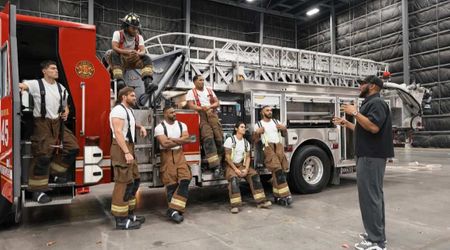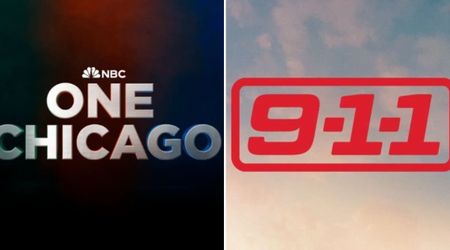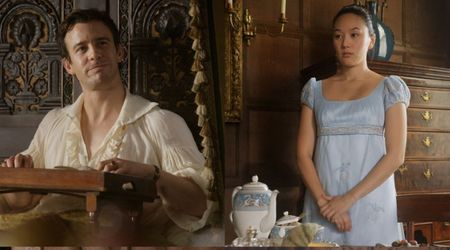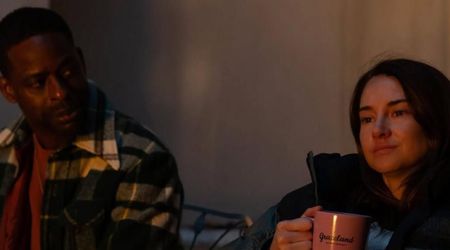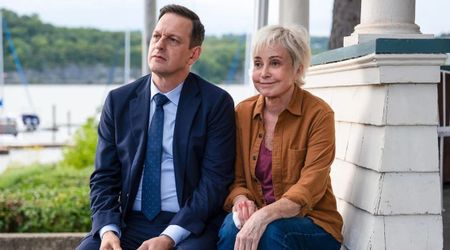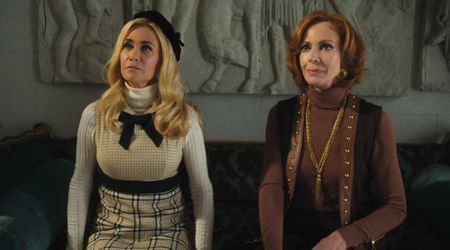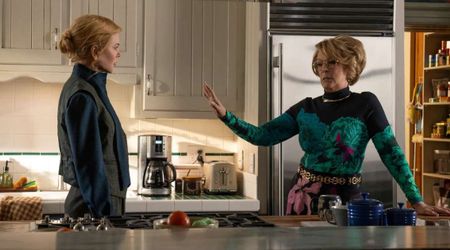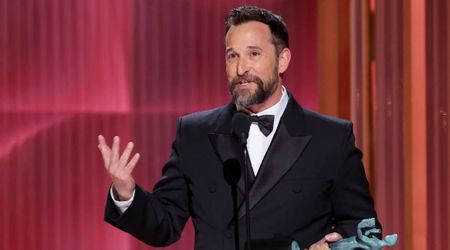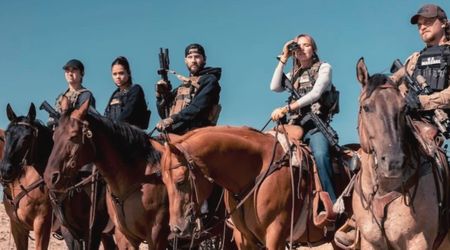New HBO documentary reveals a Martin Luther King Jr battling doubt and a changing America, just before his assassination

HBO's new documentary 'King in the Wilderness' reveals the details about the rarely talked about aspects of Martin Luther King junior during the last few years of his life. Dr King was an inspirational leader who we still revere, but there some dark years towards the end life, where he fell on hard times.
King was uncharacteristically confused and faced criticism from both sides of the political spectrum. His Black Empowerment Movement thought his nonviolence was a sign of weakness and the then president of the United States of America thought his speech against the Vietnam War was irresponsible. It was during this time that Dr King realized that his 'American Dream ' was turning into a nightmare. Dr King's leadership in the Selma Montgomery marches and the bus boycotts are now legendary, but the aftermath of these events are rarely spoken about. From the 1965 Voting Rights Act to his assassination in 1968, he remained committed to his nonviolent approach for equality even though America was at the brink of a war.
Peter Kunhardt directed 'King in the Wilderness,' which was aired at the Sundance film festival. It contains the conversations of Dr King and his friends, people who knew him very well and the Southern Christian Leadership Conference. The film reveals surprising new perspectives of Dr King's character, personal philosophies and struggles.
It also gives him a humanistic image instead of the pedestal we normally picture him on. The movie reminds us that he was a human just like the rest of us and dealt with the same emotional battles in his personal life. The documentary captures King in his private moments that would not have seen the light of the day if not for the footages shared on 'King in the Wilderness'. The director wanted to show Dr King's story with all its rough edges.
His friend's recount one of his famous quotes in the documentary. ''If you can’t fly then run, if you can’t run then walk, if you can’t walk then crawl, but whatever you do you have to keep moving forward.''

Martin Luther King Jr was a Baptist minister and a social activist who led the Civil Rights movement between the mid-1950's till his death by assassination in 1968.
Dr King was born on January 15, 1929 in Atlanta, Georgia. He was the middle child of Michael King Sr and Alberta Williams King, with both sides of the family deeply rooted in rural Georgia. Michael Sr stepped in as pastor after the death of his father-in-law and took up the name of Martin Luther King Sr. In due time his son Michael Jr would follow his footsteps and take up the name of Martin Luther King Jr.
The King children grew up in a loving and caring home. The parents tried very hard to shield them from racism. King jr's father fought against racism as he felt that racial segregation was against the will of God. When Martin Luther King Jr was 12, he lost his grandmother. The event was traumatic for him. Following this event he jumped from a second storey window at his family home, attempting suicide.
He excelled at school and went to college at the age of 15. He was quite unmotivated during his first two years and he questioned religion and was very uncomfortable while talking about it.He finally attended Bible class and decided to follow in his father's footsteps. When he was working on his doctorate, he met Coretta Scott who later became his wife in 1953. King was 25 when he completed his doctorate in 1955.
On March 2, 1955 a 15-year-old girl denied to give up her seat in a public bus to a white man. She was arrested for going against the civil law. The National Association for the Advancement of Colored People(NAACP) thought this would be a great opportunity for them to defy the segregation laws, but they found out she was pregnant, which could harm the sentiments of the religious people and they decided to halt their plans.
On December 1, 1955 they got another chance when 42-year-old Rosa Parks refused to give up her seat, which was in the colored section of the bus, to a couple of white people who were standing in the bus. She was arrested and charged. On the night of her arrest, the NAACP met with Dr King and other civil rights leaders to plan a bus boycott.

Dr King was chosen to lead the boycott. He gave a speech in which he told the people that they have no other alternative but to protest. After his visit to India, he was deeply touched and become more committed to his cause. He used nonviolent means of protesting.
In 1963, Dr King gave his famous speech, ''I Have a Dream'' in Washington which ended in the march for jobs and freedom. This speech was powerful and inspirational. He spoke of the American dream. He said, “This nation will rise up and live out the true meaning of its creed: ‘We hold these truths to be self-evident, that all men are created equal'," while speaking of the future of America.

(Getty Images)
The two most pressing issues at the time that caused conflicts and confusion in his life were the speeches he made against the Vietnam war and the Black Empowerment movement.
Dr King was an ally to the presidency at the time, but he was against the attack on Vietnam. Their methods resembled those of the Nazi's during World War II. He was horrified by the brutality caused during the war, especially that towards the children. The speech drew widespread hatred towards him and those who were his allies distanced themselves from him. In the last few years, he lost his optimism and commented that his dream had slowly turned into a nightmare. The speech highlighted the fact that racism, militarism and poverty went hand-in-hand and prevented America from living up to its ideals. This also showed Dr King's increasing courage and the reason why he is still an inspirational figure.

Dr King tried to bring out negotiation strategies to end the war but the presidency paid no heed. Senator Thomas Dodd of Connecticut was an ally but he attacked Dr King and issued the Logan Act that prevented private citizens from interacting with foreign nationals.
King remained silent through most of 1966 but soon started expressing his disgust in private settings. “Everything we’re talking about really boils down to the fact that we have this war on our hands,” Dr. King said in yet another wiretapped phone call.
He finally spoke out about the war when he saw a picture of burn wounds on the children of Vietnam caused by American Troops. He finally said, “I came to the conclusion that I could no longer remain silent about an issue that was destroying the soul of our nation.”
He finally stepped up and called for a cease-fire because he knew that America did not have any moral intentions in Vietnam. But he made a mistake when he combined the civil rights movement with the ongoing war. He later stated that he was morally right with the decision but politically was very wrong.
Now, everyone looks at Dr King's speech as an antiwar speech. But it was definitely more than that. We overlook it because it is just a reminder of an infamous event in history.
During the Black Empowerment movement, the concept of ''Black Power'' was an emotional concept that meant different things to different people, though he worried about the use of violent methods. He strongly opposed it. This led people to believe Dr King's methods, namely nonviolence, was a weak strategy especially during the chaos that was about to ensue in the country. Everyone seemed to be frustrated with Dr King.

On 16 June 1966, during the march begun by James Meredith, Stokely Carmichael who belonged to the Student Nonviolent Coordinating Committee (SNCC) gave voice to the cry, “We want Black Power!”. It was used for the first time as a public slogan. When Carmichael was asked later about the meaning of the slogan, he said, “When you talk about black power you talk about bringing this country to its knees any time it messes with the black man … ''.
He wanted to make sure people knew the difference between 'Black power and White power '. King and Carmichael had very different agendas. Dr King wanted the masses to unite as one but Carmichael wanted to establish black supremacy.
The cry for black power was rejected and was used as only a slogan for protests. Dr King remarks that this cry was used only because white power failed to keep the promises they made. This was just a cry of ''hurt''.
Dr King was put in a bad place because he did not know how to react to all the protests. He was trying to do a good thing and his vision was quite clear but he found it hard to explain it to the people as to why it took more time. The people were in a hurry to get things done but King knew it would only cause more harm.
What people don't know is how all these issues affected Dr King in life. His friends started to distance themselves from him because of the problems that came with his philosophies. He was confused and hurt and his dream started to feel like a nightmare to him. He had issues that people never seemed to notice except the ones really close to him.
This documentary reveals the problems he faced during the few months before his assassination. It has recordings and statements from people who were close to him. They spoke of how inspiring he truly was and mostly of how he too was human and was truly confused at the end. It is a human story of Martin Luther King Jr in his fight for Civil Rights.
Dr King was ahead of his time, his visions and dreams for the future were something people could not comprehend at the time. His visions were based on the bigger issues that hindered the development of the nation and he had an insight on the multi-layered conflicts that plagued the nation.
Martin Luther King Jr truly lived up to this famous quote throughout his life - ''The ultimate measure of a man is not where he stands in moments of comfort and convenience, but where he stands at times of challenge and controversy.''


